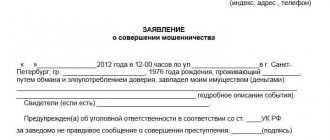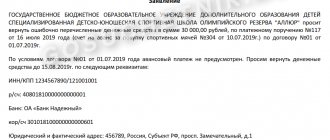There are situations in life when it becomes difficult or even impossible to return money lent to other people or borrowed. Anyone can become a debtor in the context of the economic crisis that is currently raging all over the world. But paying off debts is much more difficult. Because “you take someone else’s for a while, but you give away yours forever.”
However, even the lack of money cannot be a valid reason for refusing to return borrowed funds. After all, to return their money, the creditor has the right to use any methods provided by law. And there are not so few legal ways to get out of debt.
How to return an undocumented debt, without a receipt or witnesses
Providing money without a receipt is a rather risky undertaking, even if you know the person well and are confident in his honesty and responsibility. We can never know what the future holds for us. If the repayment deadline has come and the money has not been repaid, you should first try to resolve the issue amicably by contacting the borrower to find out the reason for the delay.
Of course, if the creditor has evidence in hand, he can always go to court or the police to protect his rights and interests.
If there are no receipts or witnesses, then the algorithm for guaranteed debt repayment may include the following steps.
Peaceful settlement of the issue
Usually the creditor does not take the receipt due to an oversight or due to excessive gullibility. On parole, the money is given to close and distant relatives, friends and good acquaintances. Therefore, the “working button” during negotiations becomes an appeal to conscience. That is why there is a saying in Rus' that if you want to lose a friend, lend him money.
If the debtor finds himself in difficult life circumstances, during peaceful negotiations the following agreements can always be reached:
- postpone debt repayment for a reasonable period of time;
- offer to repay the debt in installments;
- agree to barter or repay the debt in kind - in the form of services or goods.
For example. Vasily is an individual entrepreneur, he has his own store in which he sells building materials. To develop the business, he borrowed 200 thousand rubles from his cousin.
However, due to the coronavirus pandemic and the economic crisis, Vasily was unable to repay the debt on time, as the turnover of his business decreased. He suggested that his brother pay off the debt in goods, since he was still making repairs and would buy building materials.
Contacting the police to report fraud.
When it is not possible to extract money from the debtor peacefully, and negotiations with him do not yield results, you can try contacting the police. The Criminal Code of the Russian Federation provides for criminal liability for citizens who have taken possession of other people's money through deception.
The actions of the debtor can be classified by the police under Article 159 when he borrows money and does not repay it. In this case, the debtor takes advantage of the fact that the creditor actually does not have evidence of the provision of borrowed funds.
It is also possible to initiate a criminal case for fraud if it is proven that the debtor abused the trust of the creditor or misled him. But, let’s be honest, the police are reluctant to initiate cases for reasons such as non-repayment of debts, and even without documents. Be prepared for the fact that the police will do their best to avoid accepting your statement.
Trial
The procedure for collecting debt through the court can drag on for several months or years, so it is resorted to when other options have failed. The court's decision will depend entirely on the circumstances of the case and the available evidence.
Collection of debts issued without a receipt, not accompanied by any documents at all (for example, a telephone recording) is a complex process and requires careful preparation. In such situations, it is better to enlist the support of an experienced lawyer who will help you protect your rights as a creditor.
How to repay a debt by turning to debt collectors
When involving collectors, a mandatory condition for transferring debt collection to third parties is the recognition of the fact of transfer of money by the court. Therefore, the procedure for returning money with the help of collectors, roughly speaking, the sale of debt from an individual creditor to collectors, is possible only after the end of the trial.
Deceived creditors decide to turn to debt collectors when they need money immediately, while the chances that the debtor will return it voluntarily are minimal. Collection agencies charge a considerable amount for their services, so you should only contact them if you have a large amount of debt.
Attention! Today, collection services operate legally, guided by current federal legislation. Therefore, in controversial situations and conflicts with collectors, citizens can always turn to the FSSP, the prosecutor's office or the Ministry of Internal Affairs for help.
How to collect a debt when the only evidence is correspondence on social networks
For a long time, the question of the possibility of using SMS and correspondence on social networks to confirm the fact of a debt remained open. However, courts are now increasingly accepting such evidence as evidence for making a reasoned decision.
In the end, the courts began to accept the “tick” that the borrower puts on the MFO website in the column “I have read the terms of the loan” as an analogue of a digital signature. Why can't a promise to repay a debt sent through a Facebook chat serve as the same proof?
Materials obtained using the latest information and telecommunication networks and means, the reliability of which can be proven in the manner prescribed by law, can be used to prove guilt, protect the rights and legitimate interests of the plaintiff or defendant.
To collect a debt based on correspondence from social networks, the following standards must be observed:
- Correspondence used in court proceedings must be properly formatted. To certify it and give the evidence legal force, you need to contact a notary.
- Judicial practice indicates quite clearly that correspondence in instant messengers and social networks can be used as evidence in civil cases.
- The correspondence itself will not be enough; you will also need to prove that the messages were actually sent by the debtor; for this, you can ask the operator to confirm the fact of telephone connections and Internet access.
The content of the correspondence should be analyzed in advance for the possibility of using it as evidence in court. If there are any gaps or unclear points, they are clarified by providing additional documents and witness testimony.
How to lend money correctly
The fact of transfer of funds from the creditor to the debtor must be confirmed by documents - a personally written or signed receipt, a loan agreement. Subsequently, the creditor can use these documents as evidence in court proceedings for debt repayment:
- A loan or loan agreement is an official document designed to confirm the existence of a legal relationship between the parties of the creditor-borrower type.
The agreement can be drawn up in free form, by hand, but it must be written indicating the following points: full name, passport details, places of residence and telephone numbers of both parties, repayment period, amount of debt. It is also necessary to reflect the fact of accrual of interest and collection of penalties for late payments. - Receipt - this document is drawn up in simple written form to record the fact of transfer of money from the creditor to the debtor. Lawyers recommend transferring money against a receipt, regardless of whether we are talking about lending money, making a deposit, or an advance payment.
The requirement to draw up and sign a receipt or loan agreement must be observed if funds are issued at interest.
The receipt indicates:
- Full name, passport details, place of registration and actual residence, telephone numbers of the parties;
- the amount of funds transferred - in numbers and words;
- if there are witnesses - signatures and contact details of witnesses present during the transfer of borrowed funds.
The receipt can be handwritten or printed on a computer. The document is drawn up in two identical copies having equal legal force.
The task of the person who lends money is to carefully record the fact of issuing money, so that in case of problems with repayment, no questions arise in court or with supervisory authorities, where the creditor can turn to protect his rights and interests.
In addition to simplified documentation of the loan, the lender can also resort to the following methods to ensure the legality of the transfer of money:
- Certify the loan agreement and the receipt with a notary - a notary’s signature will allow you to avoid a situation where the debtor claims that physical or moral pressure was exerted on him, or words that, when signing the receipt or agreement to receive a loan, he was not aware of the consequences of his actions.
- Ensure the presence of witnesses at the meeting with the potential debtor, indicating their full name and contact information in the document. In the future, these people may be summoned to court to confirm the legality and legality of the creditor's demands for debt repayment.
- Organize recording of the transfer of money using video or audio recordings, which will then be used as evidence if the case goes to court.
A correctly executed document significantly simplifies debt collection under a loan agreement for the lender. So it’s worth playing it safe and spending money on a notary, rather than having to prove later that you actually lent it.
What evidence will be useful in court?
In the absence of a receipt, the following may be used to prove that the debtor has received money:
- testimony of witnesses - if third parties were present at the meeting with the creditor and debtor;
- statements from bank accounts and deposits - if funds were transferred in non-cash form;
- video camera recordings - in the case when the transfer of money took place in premises equipped with CCTV cameras;
- correspondence with the debtor by email, social networks, instant messengers or SMS;
- audio recordings - for their use as evidence, the court may order an additional voice examination.
Have you borrowed money from a person, but he is in no hurry to give it back? All means to legalize the fact of debt in this situation are good - and it is better when the debt can be confirmed from several sources at once: for example, from correspondence and video recordings from cameras.
Questions and answers from lawyers
- When can debt collection be carried out? You may find our debt collection service useful if the debtor does not return the money you gave on receipt by concluding a credit agreement or agreement and loan, including online.
You can also request the service if you borrowed an amount without a receipt. In this case, the help of professionals is especially important, since without a supporting document it is extremely difficult to achieve debt repayment.You can be an individual, a microfinance organization or a bank. We help return money to any creditors.
- Is it possible to repay a debt if the statute of limitations has passed and the borrower has not received a single request for repayment from the bank?
If the debtor has not received any written notices from the bank for more than 3 years demanding payment of the debt (in person and against signature), the statute of limitations is considered to have passed. In this case, it will be impossible to collect the debt through the court. - Is it possible to collect a debt from a guarantor?
The loan guarantor is jointly and severally liable along with the borrower, so the lender has the right to demand repayment of the debt from him. Usually, such a measure is rarely resorted to when it was not possible to recover the required amount from the main debtor. - How much do your services cost?
We do not have fixed prices for services. The final cost is calculated individually for each client. We make transparent calculations. You will know what you are paying money for. - Is it safe to contact you for help?
We care about our reputation, therefore we work in compliance with the law and enter into an agreement with the client, which states our responsibility in case of failure to fulfill financial obligations. All collection methods we use are legal. - How is mortgage foreclosure different?
A mortgage is a loan that is issued against the security of the purchased property. If the borrower does not repay the debt, the lender has the right to repossess the home under a simplified procedure. This type of debt is not referred to debt collectors. The property is sold, and the proceeds are used to pay off the debt.
Ask your question
Repayment of debt without a receipt if there is evidence
The absence of a receipt when lending money to friends, relatives and acquaintances can be a serious obstacle to the successful collection of overdue debts in the manner prescribed by law.
In accordance with the provisions of Article 162 of the Civil Code of the Russian Federation, failure by the parties to a legal relationship to comply with a simple written format for consolidating the relationship deprives the lender of the right to refer to written evidence to confirm the terms of the loan agreement.
However, the law allows for the possibility of extorting a debt from a person without a receipt - you just need to present to the court any other evidence, including witness statements, audio and video recordings, notarized correspondence from instant messengers and social networks.
Attention!
In accordance with Russian legislation, the conclusion of a simple written agreement or receipt when transferring funds from the creditor to the debtor is a necessary condition for issuing a loan in an amount over 10 thousand rubles.
However, the absence of an agreement or receipt for a loan exceeding 10 thousand rubles does not make the debt insignificant, and cannot serve as a basis for refusing to repay it.
Problems with debt collection will not arise if the creditor has evidence that the debtor acknowledges the existence of obligations. Therefore, before starting litigation, contacting the police or collection agencies, it is worth trying to resolve the controversial issue peacefully.
It is advisable to formalize the agreement reached during negotiations on paper, indicating:
- Full names of the parties, passport details, registration addresses, contact details.
- The amount of debt.
- Return deadlines.
- If the debt will be repaid in parts, it is necessary to draw up an arbitrary schedule that will suit the interested parties.
Such an agreement is signed by the creditor and the debtor, then certified by a notary, which gives it legal force if it needs to be used in court, if the creditor suddenly decides to file a claim against the debtor.
The jurisdiction of civil disputes regarding debt repayment is determined by the size of the overdue loan. For example, if a claim for debt collection is filed to claim an amount of less than 50 thousand rubles, then the creditor must apply to the magistrate court to resolve the controversial issue.
In all other cases, trials will take place in the district or city court at the location of the defendant.
The advantage of collecting a debt in court is that, in addition to the loan itself, interest can be collected from an unscrupulous debtor, which can be determined by agreement of the parties or set in accordance with the key rate of the Central Bank of the Russian Federation.
But claims for compensation for moral damages will most likely be rejected by the court, since their recovery is made only in the event of a violation of the plaintiff’s non-property rights, while monetary debt refers to property claims.
The court may also, at the request of the plaintiff, request the production of evidence from private companies or government agencies. For example, this could be a request to the Internet provider - with information about the IP address from which messages were sent asking for a loan, or information about the phone if the citizen accessed social networks through it. Then the request will be sent to the mobile operator.
To repay a debt without a receipt through the court, the plaintiff must pay a state fee of 400 rubles (for a debt amount of up to 20 thousand rubles) or 400 rubles plus 4% of the collected debt (for a debt of more than 20 thousand rubles).
If the court makes a decision in favor of the plaintiff, the defendant will have to reimburse him for all funds spent on drawing up and filing a statement of claim, paying for a lawyer, conducting examinations, and notary services.
If the borrowed money is transferred to the debtor’s bank card, the creditor can return it as funds that the debtor took possession of for the purpose of unjust enrichment. Article 1102 of the Civil Code of the Russian Federation establishes that if a citizen or legal entity has taken possession of property without legal grounds for doing so, they are obliged to return it in the prescribed legal manner.
Try not to lend money to unreliable people
And if you are giving a loan, then fill out a receipt and make sure that the borrower draws it up correctly. Otherwise, it will be very difficult to “knock out” the debt back.
Stages of our work
Cooperation with the Law Office takes place in several stages:
1
Preliminary consultation by phone or online (free).
2
Personal meeting with the client in the office. We conduct a conversation, clarify all important points, study documents, assess the prospects of the case and develop a work strategy.
3
We conclude an agreement.
4
We provide a range of services within the framework of the case.
Call or leave an online application on the website, we will agree on a date and time for a meeting, and will help resolve any issues related to debt collection.
Submit your application
What to do if the debt is issued against receipt
Lawyers recommend borrowing money only if a number of conditions are met. You are 100% sure that the borrower is an honest person, you have known him for a long time and well, you have eaten what is called “a lot of salt.” This citizen will be able to repay the debt without constant reminders, and then you will not need to waste your nerves bringing the matter to trial. However, smart people say that even in this case, an IOU is far from an unnecessary attribute.
In its simplest form, a receipt is a handwritten document that indicates the name of the debtor, his passport and contact information, the amount of obligations and the period by which they must be fulfilled. In the future, the receipt will be used as evidence of the defendant’s guilt in court proceedings.
To repay a debt if you have a receipt, you can use the following methods:
- Peaceful settlement of the issue - many debtors are afraid of publicity; they can be influenced through mutual relatives or acquaintances. If during the negotiations it turned out that a person found himself in a difficult life situation - he became ill, became disabled, was left without work, you can offer him to postpone the debt repayment period, installment plan or return the loan in kind.
- Contacting the court or the police - if you have a written receipt, contacting the court or law enforcement agencies can be the most effective way to quickly return the borrowed funds. After receiving a court decision, the plaintiff submits it to the Bailiff Service to forcibly collect the debt.
- Assign the rights to claim the debt to third parties. This method of debt repayment seems simple only at first. In fact, collectors charge up to 50% of the debt amount for their services, but they do not provide any guarantee of a successful resolution of the issue. Or they may offer you to buy out the debt for a ridiculous 5–7% of its real amount.
An attempt to collect debts documented with documents confirming them is the easiest process, often making the participation of a lawyer unnecessary. Notarization of the receipt will be a significant advantage in favor of the lender. Let’s say right away that getting a receipt certified by a notary is an optional step. But the presence of notary marks on the document will allow the court not to doubt its authenticity and legality.
There are often situations when the debtor refuses to acknowledge the fact of issuing a receipt and his signature on it. In this case, a handwriting examination will be required. Therefore, if a document is printed on a computer, in order to obtain reliable results during the examination, in addition to the signature, the debtor must write a couple more words. For example, the place where the receipt was drawn up, enter your full name, put down the date and amount of the debt in numbers and words.
What should the receipt look like?
The receipt is drawn up in any form in written or printed form. To ensure that the court does not have questions or claims regarding the document itself and its contents, when drawing it up it is worth considering certain points:
- Ideally, the receipt should be written by the borrower in his own hand. This will greatly facilitate the handwriting examination. If a person was under pressure at the time of writing the document, he was upset, under the influence of emotions or in strong emotional excitement - this will affect the handwriting, which the expert will also indicate in his conclusion.
- All the numbers indicated in the document - and this is the amount of debt, the repayment period, interest - must be written down again in words.
- To avoid misunderstandings, no errors, corrections or cross-outs are allowed in the text of the receipt. It is better to ask to rewrite the receipt than to later explain to the court why the corrections occurred.
- A mandatory point is to indicate that the funds were transferred for temporary use, otherwise the opposing party’s lawyers may refer in court that the money was provided free of charge and does not imply the emergence of rights of claim. Like, it was such a gift.
- If we are talking about a large amount, then the receipt should be certified by a notary, or a meeting between the borrower and the lender should be held in the presence of witnesses, who also sign the document.
- When drawing up a receipt, the creditor must ask the debtor to provide a passport in order to compare the signatures on the documents.
Our lawyers advise: if you are not sure that you will be able to receive your money on time and in full, then you should take a receipt from the debtor. Regardless of whether he is your brother, uncle or cousin, how well you know the person and who vouched for him.
But if you are not sure of repaying the debt, you should not borrow, even if it is a small amount. Then the problem of how to get your money back with or without a receipt will bypass you.











